Entro
Minneapolis–St.Paul Airport Wayfinding
Client: Metropolitan Airports Commission (MAC) / Minneapolis—St.Paul Airport
Summary
MSP Airport’s accessible signage features clear typography, global symbols, tactile elements, braille and 3D printing. Consistent nomenclature, multilingual support and tech-enabled updates ensure usability for diverse, vision-impaired and first-time travelers.
Context
To address these diverse groups, we made efforts to ensure sign messaging is as visually legible as possible through careful choice of typeface, size, simplified nomenclature, layout, colour, and placement.
Keeping accessibility and multilingual user groups a top priority, we applied universally recognizable symbols that adhere to global standards, using larger, brighter pictograms. For those with vision impairment, tactile messaging and braille is included on identification signage and on elevator panels. We took care to maximize cap height where possible, and ensured the consistent and frequent placement of signs. It was important to apply consistent nomenclature across all signs, and we worked with the airport marketing department to ensure the same nomenclature extends to maps and web content.
The wayfinding program includes signage to indicate areas where T-Coil services are available, along with a QR code that links to the MSP Accessibility webpage. Signage also indicates that the airport has areas with free access to Aira, a visual interpreting service that provides live on-demand access to visual information.
Design process
When developing the Custom Pet Relief facilities tactile map, we were concerned that the pictos (for ‘turf’, ‘sink’, ‘waste bags’, etc.) may be difficult to ‘read’ by touch. So we worked with the airport marketing team and TDAC (Travelers with Disabilities Advisory Committee), who tested three options we had fabricated:
- Tactile pictograms
- Numbers
- Simple geometric shares (chosen option)
Solution
The latest technology in 3D printing was used to apply tactile and braille to sign surfaces. Using this technology, signage can be easily and cost effectively updated if there are destination or nomenclature changes over time.
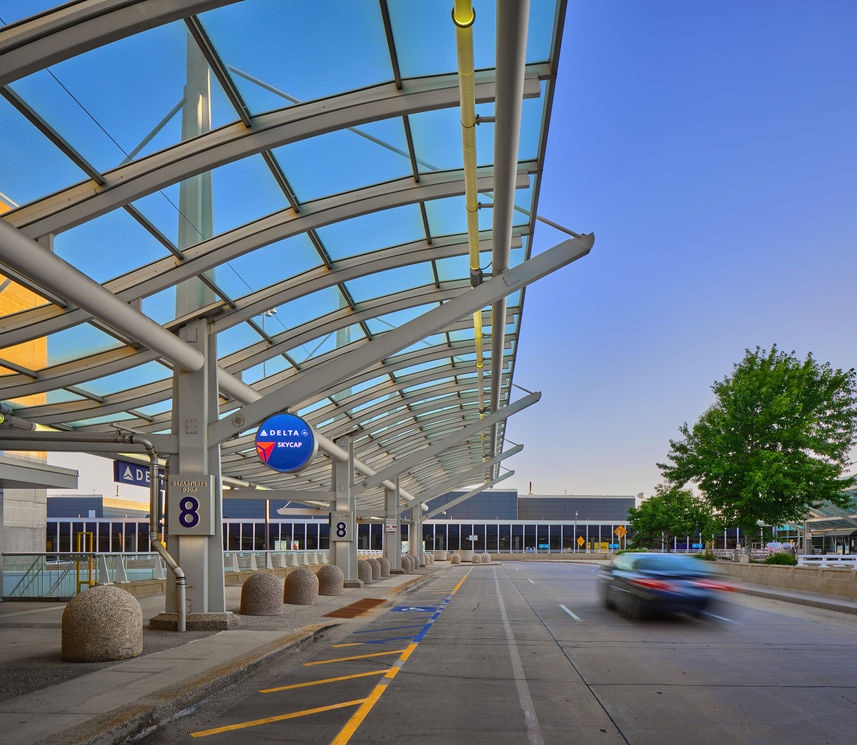
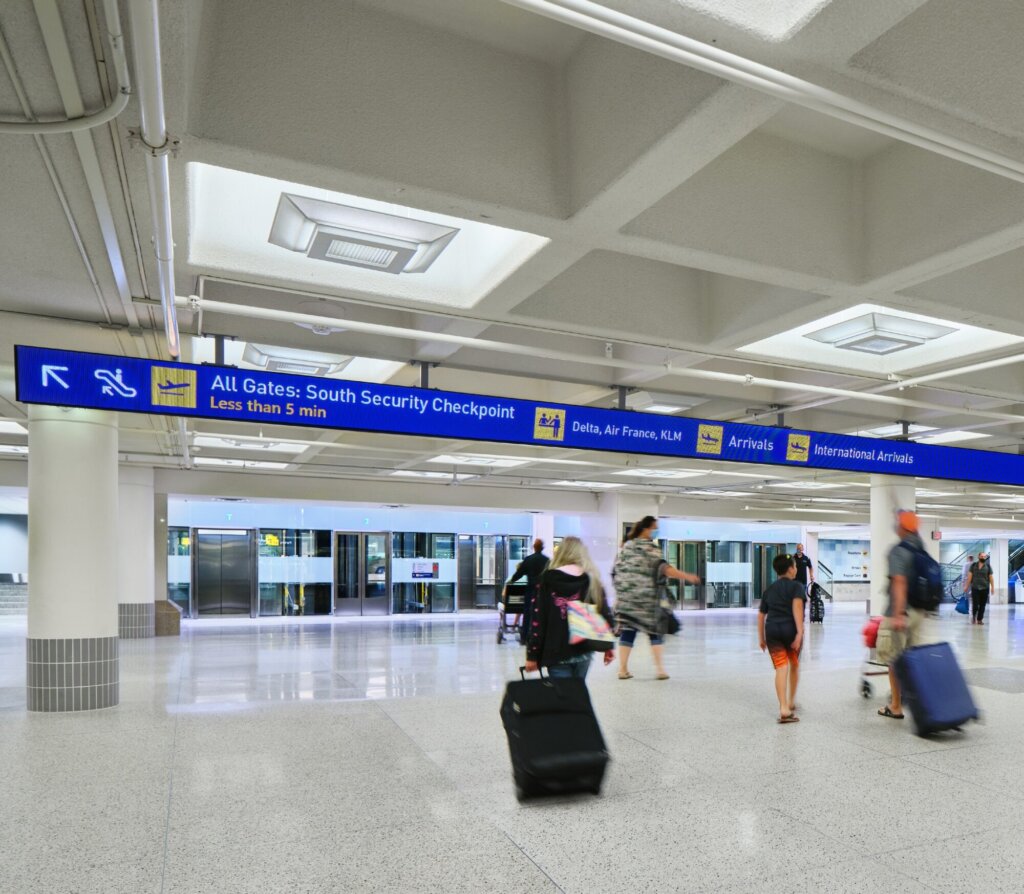
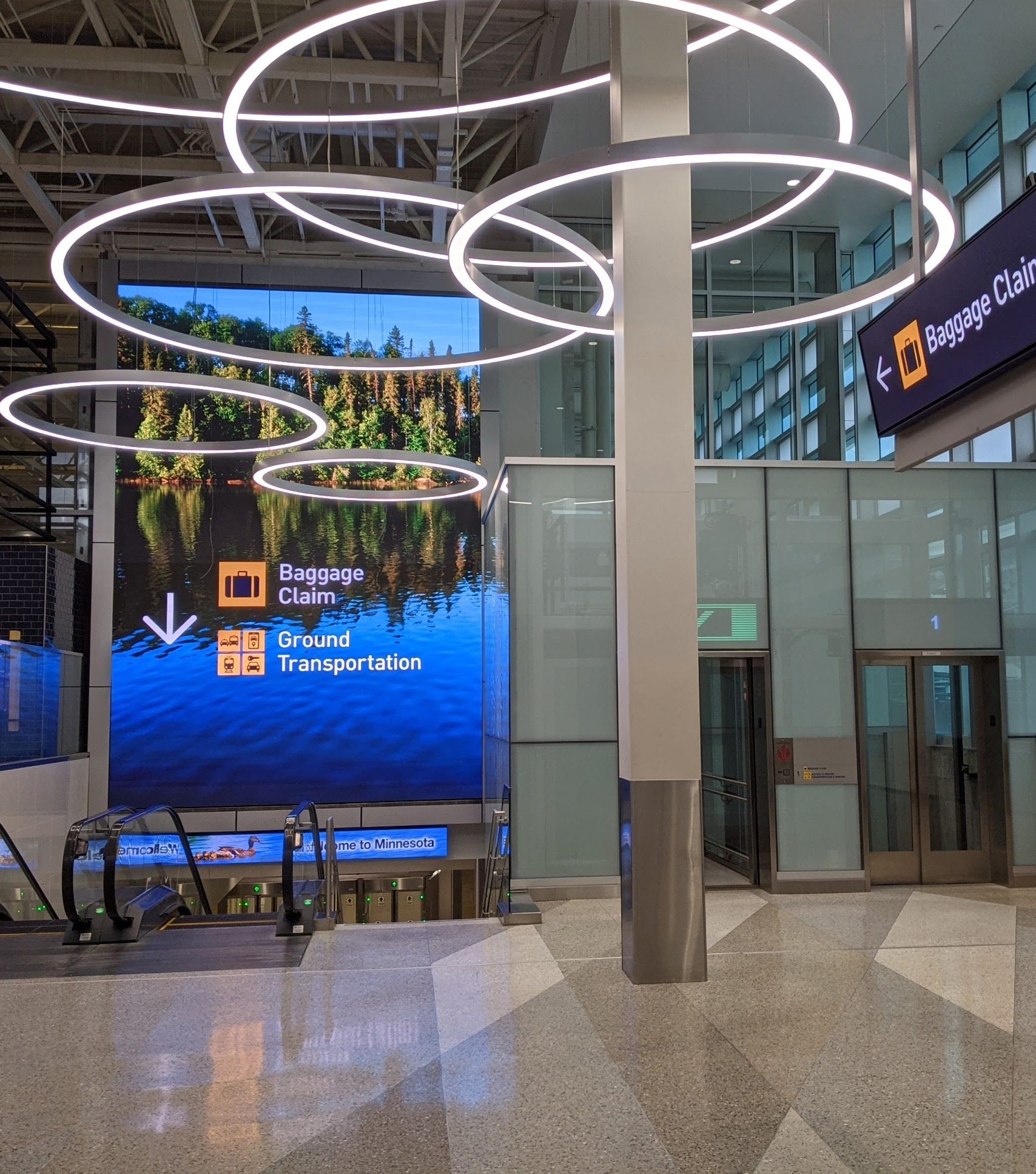
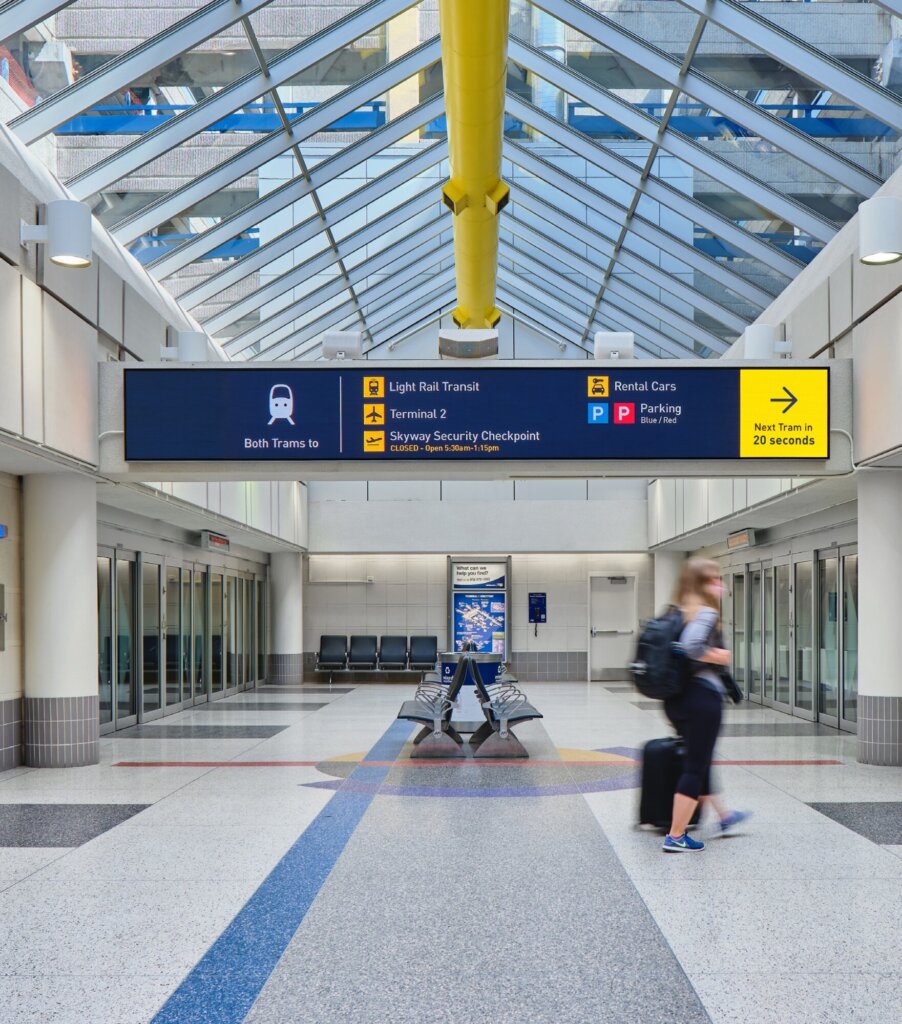
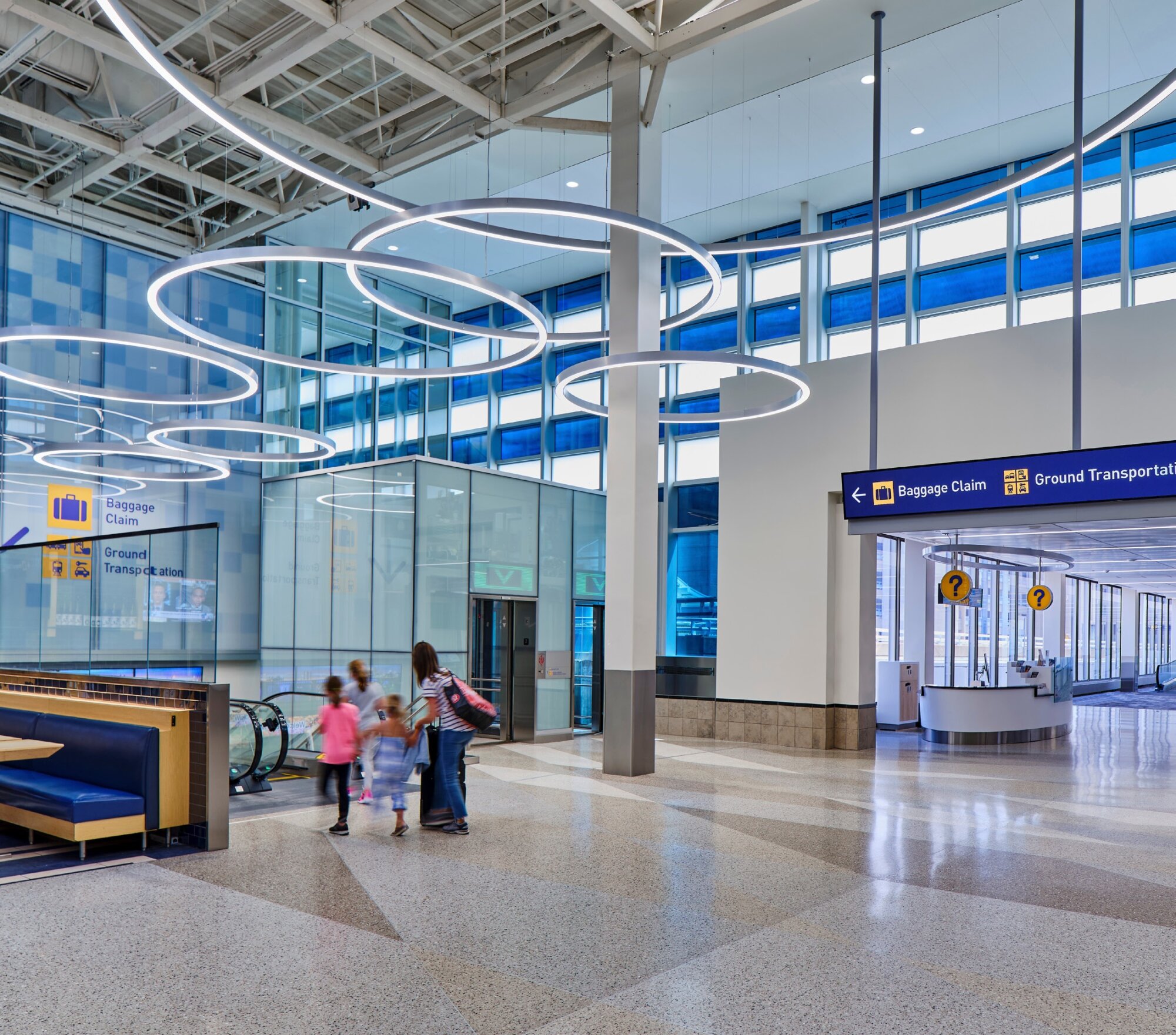
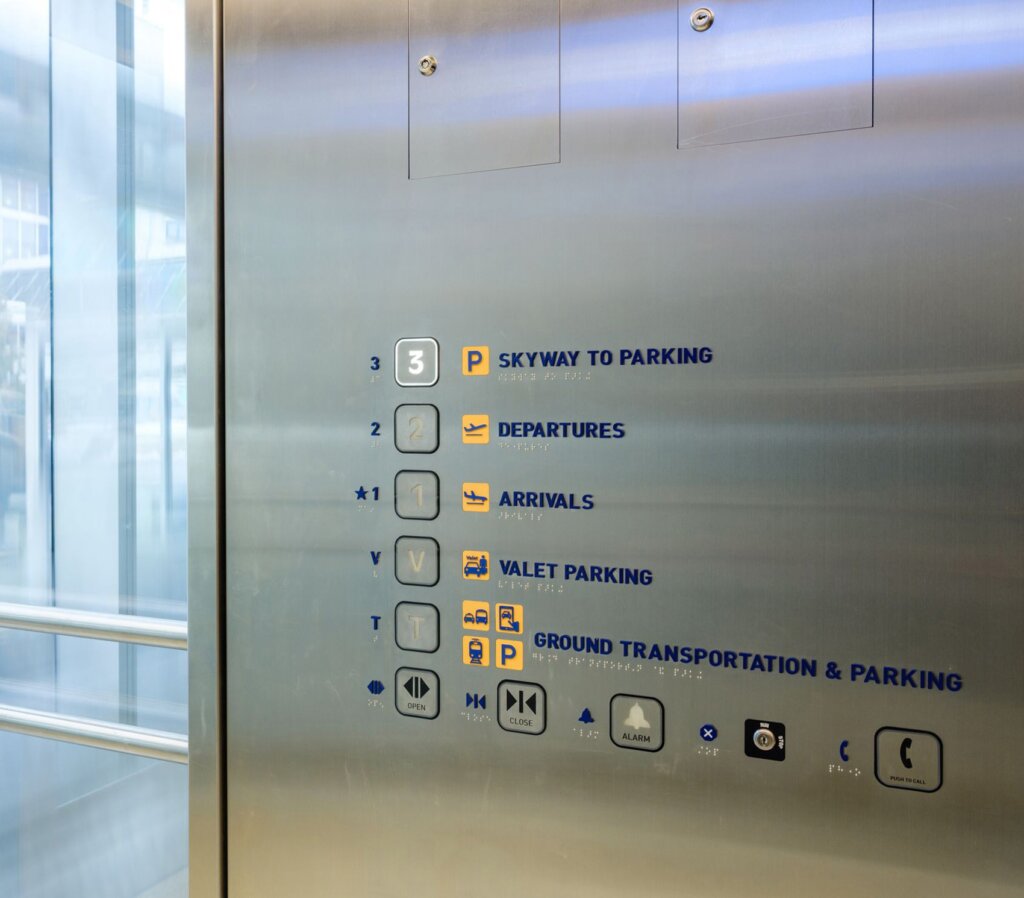
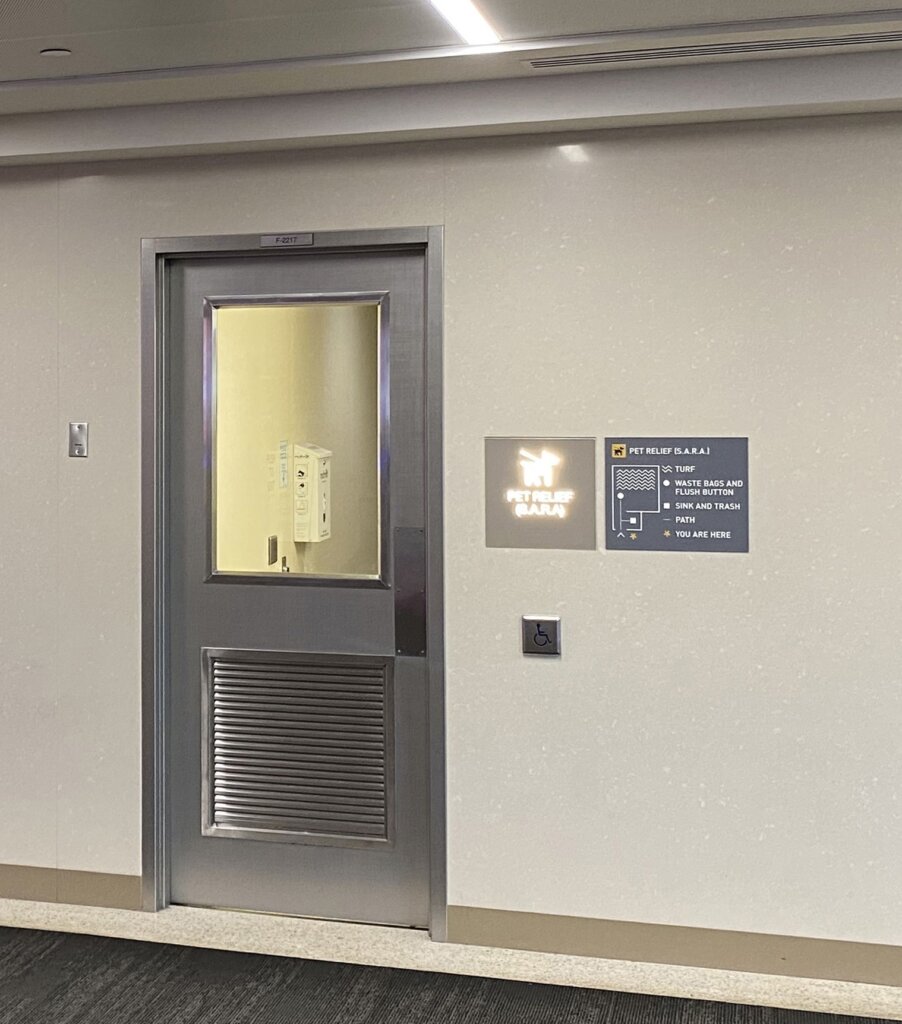

Does the project reflect the principles of diversity and inclusion? If so, explain.
MSP Airport is an international hub, which served over 25 million passengers in 2021, many from diverse backgrounds, and many who may be experiencing the airport for the first time.
